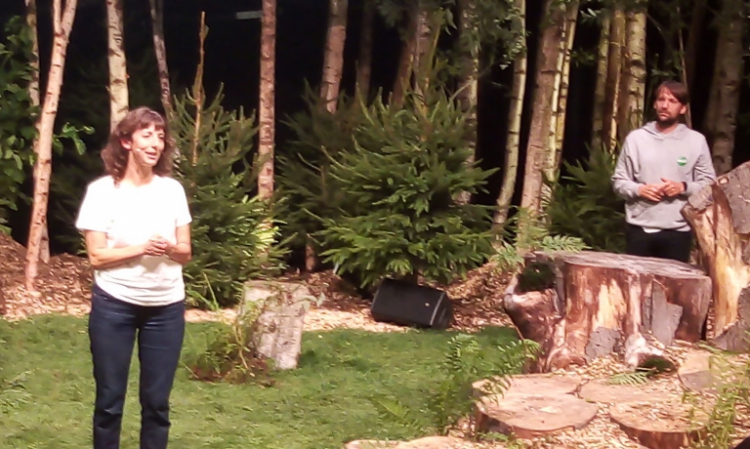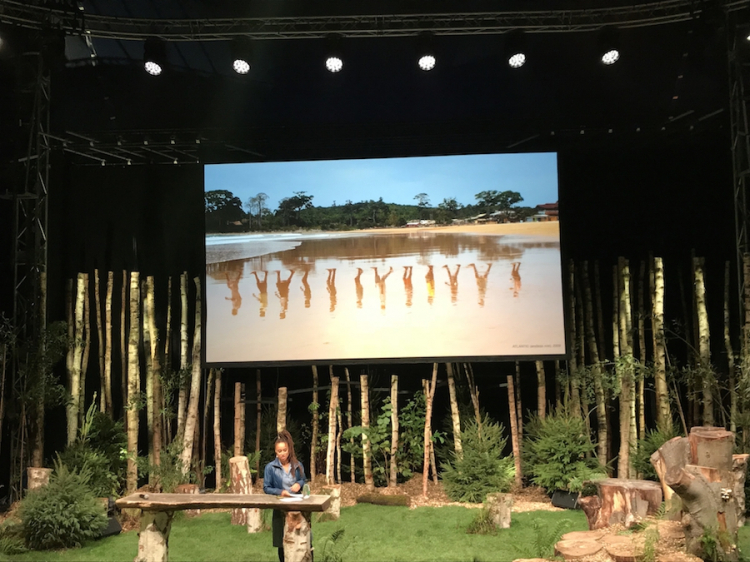Some believe chefs are very sensitive creative people with their head in the clouds. I don’t fully agree, but I do admit that this definition suits some of the great chefs I know, and partly myself too. I’m back from Copenhagen, gloomy and dark as almost always the case on the occasion of MAD.
It’s my fourth time at MAD, out of six editions. The first was in 2011, and I boast about it as if I were a child who had just learnt to dance on points. I tell everyone, as if it were a badge of honour. I volunteer in case someone wants a term of reference and answer questions on how it used to be, with the typical ease of a rock band groupie.
MAD is the kind of event that’s unpredictable. At first it’s hard for it to breach the rationality to which we’ve been condemned, but when it does find its place, it shows its complexity and forces you to think. Like in love affairs, it’s almost impossible for you to appreciate every single aspect of your loved one.
However, sometimes just one element is enough to keep you anchored and make you think there cannot be a world, unless that person is a part of it. In my case, one speaker was enough, paving the way for new emotional frontiers, new energy to convey on the plate of my life, being aware, though banal as this may seem, that we can all contribute in making a better world.
Don’t think this as a hippy congress in which peace and love prevail on content. This is a symposium full of inspiring role models. At MAD the typical congress roles are changed: in traditional congresses, restaurant icons (as well as those from other fields) are those the audience aspires to and wants to imitate. In this case, restaurant icons mingle with the audience. They speak with them of their research; their thirst of knowledge, their desire to discuss, the pressing need to share, the serenity and naturalness typical of Nordic countries make Mad THE MAD.

Melina Shannon-Dipietro and, behind, Renè Redzepi, the two curators of MAD Symposium
Even
René Redzepi could have been in the frontline. He could have enjoyed his well-deserved popularity, given he’s created one of the greatest congresses in the world. Yet year after year, his presence is always discreet, his approach is so “normal”. I envy him. I envy the Danes who have such a “normal” person yet so inspiring as their role model.
Interesting, fun speakers. Topics often focused on gender equality and on the #metoo movement. Lynda Obst, Hollywood producer with plenty of nominations and Academy Awards, captured my attention with her story and most of all with the irony and disenchantment typical of those who know they pulled through. One speaker made the difference, in my case. His speech came to my mind, word by word, as soon as I returned to Italy, while I was watching a report on the genocide in Myanmar on CNN. Terrible scenes, children killed, exactly the same scenes that Arthur Karuletwa, Starbucks director of traceabilityshowed in his pictures.

Multi-disciplinary visual artist Jeannette Ehlers, Danish though originally from Trinidad, works to recuperate the memory of Danish slavery in the Caribbean
As a survivor, he captured the crowds at
MAD. Until then, they thought (hoped) they had reached the peak of violence with the reports on the squalid violence imposed on women. Then came that image of an unrecognisable face, violated with a machete, and the descriptions of children beaten again and again and again on tree trunks, until the last cry, the last breath. One million dead people for economic and racial reasons. In Rwanda, over 100 days, in 1994.
Shock, cold, fear, compassion. Finally, a question: can a person, a chef, a manager, on the other side of the world, be of any help? He showed that yes, you can. Today Rwanda produces coffee of the highest quality, the most precious production for this land. The ethnic groups that once fought against each other, now work together to give their country a second chance. Regardless of whether they are Tutsi or Hutu, they think as a people for the good of their land and coffee is one of the crucial tools for this comeback.
Arthur Karuletwa, Starbucks Director of Traceability, developed a programme to trace the origins of coffee in Rwanda. He does so with each shipment, each bag, each grain, so as to know the employment conditions, and give a name and a face to those who harvest and produce coffee. So they are no longer ignored, the way the genocide was guiltily ignored 24 years go. By doing so, he has contributed in giving new trust to people who were cruelly deprived of their trust, their future and dignity. Whether they were Tutsi or Hutu.
Translated into English by Slawka G. Scarso